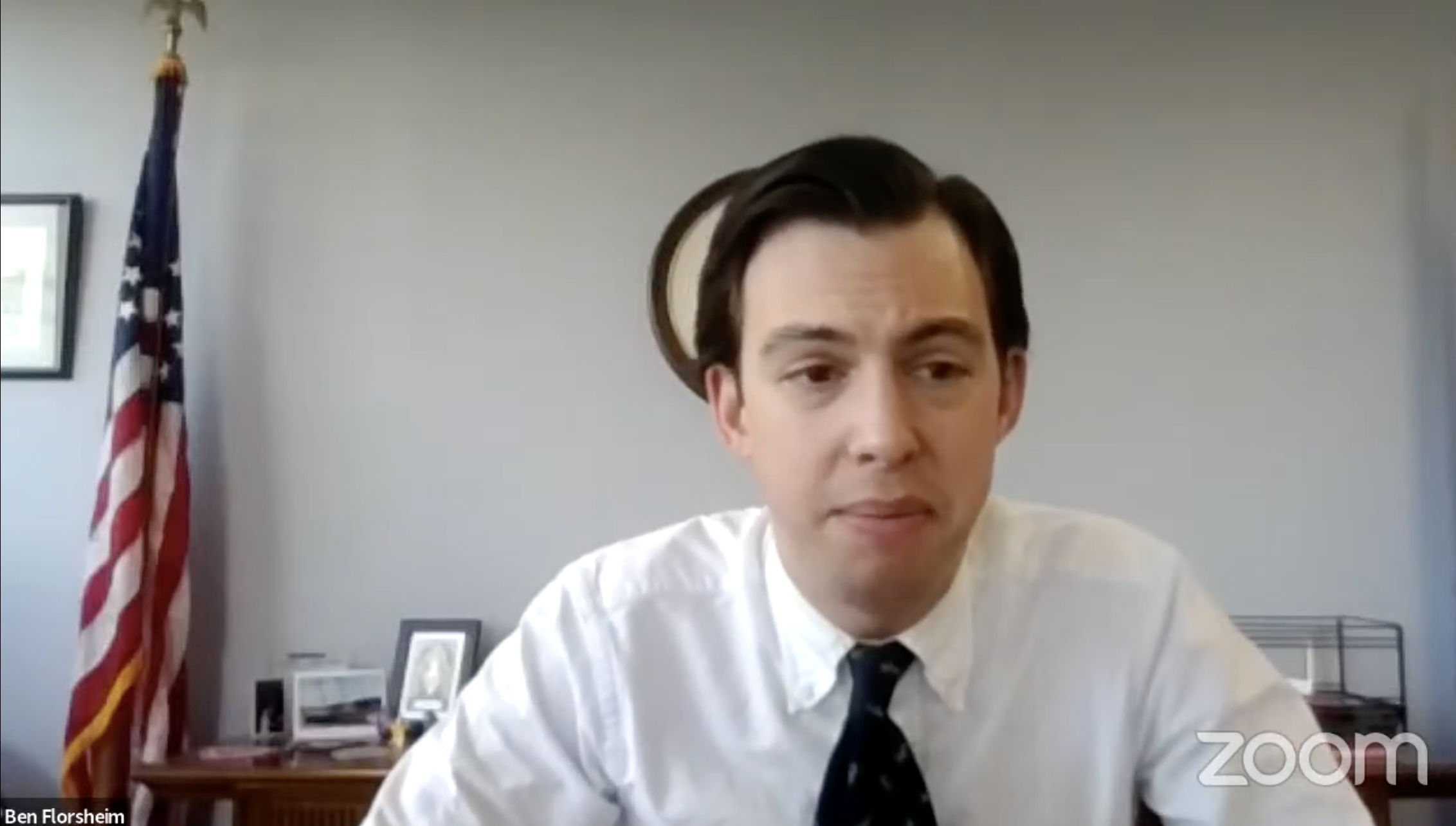On Wednesday (Jan. 10), the Motor Vehicle Property Tax Taskforce reconvened for the second time this week with a specific focus on the subcommittee Collecting Revenue at the Local Level. The committee discussed potential strategies on how the state’s 169 towns can recoup lost revenue in the event of a phased-out motor vehicle property tax.
Taskforce member Middletown Mayor Ben Florsheim said, “We should be looking at things like a local sales tax” but doesn’t believe that sales tax revenue alone will be the solution. He then echoed a suggestion brought up earlier in the week by Rep. Brandon Chafee (D-Middletown) that would increase taxes on individuals earning between $1 and $2 million by 1 percent, and those exceeding $2 million would be hit with a tax rate of 8.99 percent.
“I am somebody who is sympathetic to and believes that we should be taking a look at the income tax rates,” Florsheim said. However, he then quickly backtracked saying that increasing taxes “is sending a little bit of a mixed message to be revisiting,” referring to Gov. Ned Lamont’s income tax cuts that went into effect January 1.
When questioned by Committee Chair Sen. MD Rahman (D-Manchester) about the revenue and collection costs of the unpopular tax, Mayor Florsheim struggled to give a direct answer, stating he didn’t have the number and “wished he did.” Despite suggesting he would find the information, he switched the topic and never disclosed the amount publicly. However, figures from the Office of Policy and Management (OPM) indicate Middletown’s motor vehicle tax levy is nearly $12 million.
The Middletown mayor’s lack of understanding of the city’s revenue stream underscores the importance of having a clear understanding of the amount needed to be recouped before any proposal of tax increases is put forth.
Rep. Susan Johnson (D-Windham) offered a more productive insight beyond merely advocating for tax hikes. Highlighting the challenges in her economically disadvantaged district, Rep. Johnson expressed apprehensions regarding the potential adverse effects of scrapping the car tax.
With emphasis on the predicament faced by towns like Windham, where a significant portion of properties are rental-based, she warns that raising property taxes may not generate sufficient revenue to offset the removal of the car tax. Her concern was that by shifting this tax burden onto businesses and low-income homeowners — who are already struggling with property taxes — might compel them to sell their properties and relocate.
Rep. Johnson concluded her statement by emphasizing the need to consider the impact on families and senior citizens struggling to make ends meet by paying property taxes. She urged that they consider the implications on these demographic groups as the discussion unfolds.
Echoing Rep. Johnsons concerns about adverse consequences, Mark Boughton, Commissioner of Connecticut’s Department of Revenue Services, said there are “dozens of unintended consequences” that can happen if the tax is eliminated.
Boughton indicated his focus on obtaining data to fully understand the effects of eliminating or adding taxes, including the income tax implemented in 1993. He also wants to benchmark Connecticut against other states in New England along with New York and New Jersey to understand their funding mechanisms. This includes investigating whether they utilize a county form of government structure to fund towns or if the state takes on that responsibility.
Additionally, Boughton expressed the necessity to research the car tax’s history, and assess the various proposals put forth to understand the reasons behind their rejection. Due to the complexity of this task, he would require funding for staffing and research, saying, “Carving into the income tax and other taxes” involves scrutinizing the entire state tax structure including the property tax and “this will take time and resources.”
Boughton asked that the committee take the necessary time to develop a well-researched and comprehensive plan before finalizing an end product. He stressed the importance of gaining support from the General Assembly, and patience, since this process will “take some time to get this right.” Achieving this, in his view, would be a significant “victory for the taxpayers in the state.”
The task force was formed during the 2023 legislative session through a bill aimed at abolishing the car tax. The initial proposal would have allowed towns to recoup their lost revenue by introducing licensing fees on landlords and an eight percent surcharge on the revenue from homeowners and car insurance policies. However, due to resistance from towns advocating for a more predictable revenue source, the bill went through several revisions.
The legislation evolved to create a task force specifically tasked with examining issues associated with the car tax’s repeal, which was signed into law in June 2023. The task force is statutorily required to present its finding to the General Assembly by February 2024.

